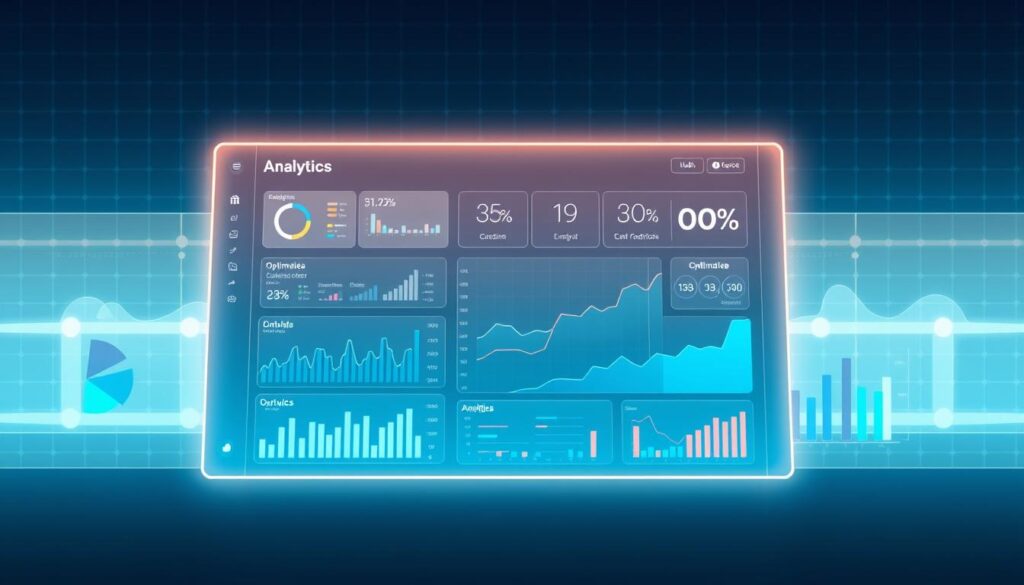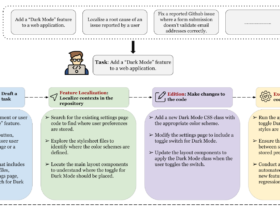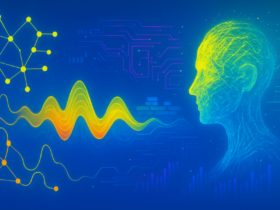In today’s fast-paced digital landscape, businesses are constantly seeking innovative ways to stay ahead. AI marketing automation emerges as a game-changer, offering dynamic solutions that elevate efficiency and drive growth without manual intervention. By integrating artificial intelligence with automation tools, marketers can make rapid, data-driven decisions, revolutionizing the marketing landscape.
Traditional marketing methods are evolving into modern, AI-driven techniques that seamlessly integrate social media and strategic campaigns. This shift enables businesses to streamline workflows and enhance operational performance. With advanced platforms, companies can manage marketing campaigns more effectively, ensuring precise targeting and scalable growth.
The benefits are clear: from personalized customer experiences to advanced customer segmentation, AI marketing automation empowers businesses to refine their marketing strategy, leading to improved engagement and operational efficiency. Learn more about how AI can enhance your SEO performance at https://aigeneratorreviews.com/seo-ai/.
Key Takeaways
- AI marketing automation enhances business efficiency and growth through dynamic campaign orchestration.
- Blending AI with automation enables rapid, data-driven decisions in marketing.
- Traditional marketing methods are evolving into AI-driven techniques, integrating social media and strategic campaigns.
- Businesses can streamline workflows and enhance performance using advanced platforms.
- AI marketing automation offers key benefits like scalable campaign management and precise targeting.
Introduction: The Evolution of Marketing Automation and AI
Marketing automation has come a long way since its inception. What began as basic email sequencing has evolved into a sophisticated ecosystem powered by artificial intelligence. Traditional tools focused on repetitive tasks, but modern solutions now offer dynamic, real-time decision-making.
Today’s marketers face a flood of customer data. AI transforms this data into actionable insights, enabling personalized customer journeys and precise campaign targeting. This shift from static to adaptive strategies is revolutionizing how businesses engage with their audiences.
The integration of AI into marketing automation tools has unlocked capabilities like next-best-action decisioning and real-time analytics. These features allow businesses to deliver more relevant and timely interactions, enhancing customer satisfaction and operational efficiency. Learn more about how AI can elevate your marketing efforts at https://aigeneratorreviews.com/what-are-the-benefits-of-using-agent-gpt/.
| Feature | Traditional Automation | AI-Driven Automation |
|---|---|---|
| Decision-Making | Rule-based, static | Dynamic, real-time |
| Data Utilization | Basic analytics | Predictive and deep insights |
| Customer Interaction | Generic messaging | Personalized experiences |
As the marketing landscape continues to evolve, embracing AI-driven strategies is no longer optional—it’s essential for staying competitive. The ability to adapt and innovate will define the future of successful marketing campaigns.
Understanding the Fundamentals of Marketing Automation
Marketing automation is a powerful tool that helps businesses streamline and enhance their marketing efforts. At its core, it involves using technology to manage multi-step customer journeys across various channels. This approach not only simplifies tasks but also provides valuable insights through integrated reporting functions.
For marketers, automation is more than just efficiency—it’s about precision. By automating routine tasks, professionals can focus on strategy and creativity. This shift allows for better campaign orchestration and more accurate data segmentation, leading to more personalized and effective marketing efforts.
A robust platform is essential for successful marketing automation. These platforms integrate both traditional and advanced methodologies, offering features like campaign scheduling, analytics monitoring, and automated interactions across multiple channels. They empower marketers to build data-driven strategies that resonate with their audience.
Key functions of marketing automation include managing campaigns, monitoring performance, and automating interactions. These capabilities help businesses deliver timely, relevant content, enhancing customer engagement and operational efficiency. By understanding these fundamentals, marketers can leverage automation to create informed, strategic approaches that drive growth.
Harnessing AI marketing automation for Campaign Optimization
As businesses strive to enhance their digital strategies, AI-driven solutions are reshaping how campaigns are optimized. By leveraging advanced technologies, companies can now create more efficient and effective marketing efforts. This section explores how AI optimizes campaign creation through dynamic customer journeys, real-time decision-making, and personalized content recommendations.
Next-Best-Action Decisioning
Next-best-action decisioning is a powerful feature of AI marketing automation. It enables businesses to deliver personalized, real-time campaign optimizations, boosting ROI. By analyzing customer behavior and preferences, AI determines the most effective next step in a customer’s journey. This approach ensures timely and relevant interactions, enhancing customer satisfaction and engagement.
- Real-time campaign adjustments based on customer actions
- Increased conversion rates through tailored interactions
- Enhanced customer experience with personalized messaging
Dynamic Content Recommendations
Dynamic content recommendations are another key benefit of AI marketing automation. AI analyzes vast amounts of data to suggest the most relevant content for each customer. This not only improves campaign effectiveness but also ensures that customers receive content that resonates with their interests and needs.
- Content tailored to individual preferences
- Improved engagement through relevant recommendations
- Increased efficiency in content delivery

By automating decision processes and refining campaign targeting, AI marketing automation reduces manual oversight. This allows businesses to focus on strategy and creativity, leading to more effective marketing efforts. The integration of AI into campaign optimization ensures that businesses can deliver timely, relevant, and personalized experiences, driving growth and customer satisfaction.
Setting Up an Effective Strategy for Your AI Marketing Efforts
Creating a successful strategy for your AI marketing efforts begins with a clear roadmap. This roadmap should guide your integration of advanced tools, ensuring that your campaigns are both efficient and impactful.
Defining Campaign Objectives
Establishing clear marketing objectives is the cornerstone of any effective strategy. These objectives should be specific, measurable, and aligned with your business goals. By defining these targets, you can ensure that your efforts are focused and purposeful. Key performance indicators (KPIs) will help you track progress and make data-driven decisions.
Organizing Data Infrastructure
A robust data infrastructure is essential for unlocking the full potential of your efforts. This involves organizing and unifying your data to support seamless integration and real-time insights. When your data is well-structured, you can leverage analytics tools to refine your campaigns and deliver more relevant content to your audience.
- Align tasks with measurable outcomes using integrated analytics tools.
- Enhance email automation and other digital channels through effective data organization.
- Provide a clear roadmap for transitioning from traditional campaigns to a data-optimized strategy.
By aligning your tasks with measurable outcomes and leveraging analytics, you can refine each campaign to achieve greater success. This strategic approach ensures that your efforts are both effective and efficient, driving growth and customer satisfaction.
Leveraging Data Insights and Predictive Analytics in Marketing
Modern businesses thrive on data-driven decision-making. By harnessing the power of intelligence and machine learning, companies can unlock deeper insights into customer behaviors and preferences. This strategic approach not only enhances campaign performance but also drives operational efficiency.
Customer Data Segmentation
Customer data segmentation is a cornerstone of effective marketing strategies. By analyzing vast amounts of information, teams can identify distinct audience groups, enabling personalized messaging. This tailored approach ensures that each segment receives content that resonates with their needs, boosting engagement and conversion rates.
Real-Time Insights for Campaign Performance
Real-time insights offer a dynamic way to monitor and adjust campaigns. Predictive analytics, powered by machine learning, forecasts trends and optimizes performance measures. This capability allows businesses to make timely adjustments, ensuring campaigns remain relevant and effective. By aligning product offerings with customer interests, companies can achieve a more significant impact.
Our team leverages artificial intelligence to process complex data, deriving actionable intelligence. This intelligence guides campaign adjustments and improves overall performance. Continuous model refinement ensures accuracy as market conditions evolve, keeping strategies aligned with business goals.
Personalizing Customer Experiences with Advanced AI Tools
Personalization is at the heart of modern customer experiences, and advanced AI tools are revolutionizing how businesses connect with their audiences. By leveraging machine learning and data analysis, companies can craft tailored messages and automated journeys that resonate deeply with individual preferences.
Tailored Messaging and Automated Journeys
AI-powered tools enable businesses to analyze vast amounts of data, creating personalized messages that align with customer interests. These systems can automatically adjust campaigns in real-time, ensuring each interaction is contextually relevant and targeted.
- Real-time campaign adjustments based on customer actions
- Increased conversion rates through tailored interactions
- Enhanced customer experience with personalized messaging

Improving Engagement Through Personalization
Machine learning plays a crucial role in refining personalization efforts. By continuously analyzing customer behavior, businesses can develop bespoke communication strategies that drive engagement and loyalty.
- Content tailored to individual preferences
- Improved engagement through relevant recommendations
- Increased efficiency in content delivery
Companies like Reebok and Pandora use machine learning to identify micro-segments of users, facilitating hyper-targeted messaging and offers. This approach not only enhances customer satisfaction but also drives operational efficiency, ensuring each interaction is meaningful and impactful.
Integrating Multi-Channel Marketing for Seamless Campaigns
In today’s competitive market, integrating multiple channels into a unified workflow is crucial for maximizing performance and delivering a cohesive customer experience. By bringing together email, social media, and chatbots, businesses can create a seamless interaction that resonates across all touchpoints.
Email Automation and Social Media Integration
Email automation and social media integration form the backbone of a multi-channel strategy. Email automation allows for personalized, timely messages, while social media integration ensures consistent engagement. Together, they create a unified customer experience that drives higher conversion rates and customer satisfaction.
- Email automation streamlines communication, ensuring timely and relevant messages.
- Social media integration amplifies brand presence, engaging customers where they are most active.
Chatbots further enhance this strategy by providing real-time support and engagement, ensuring customers receive immediate assistance and personalized interactions.
Monitoring Performance and Continuous Learning
Monitoring performance across channels is essential for gaining valuable insights. By analyzing data, businesses can refine their strategies, ensuring each campaign is more effective than the last. Continuous learning from cross-channel interactions helps refine future strategies, keeping them aligned with customer needs and preferences.
By integrating these elements, businesses can achieve a seamless, automated workflow that maximizes performance and delivers valuable insights into customer engagement.
Actionable Tips for Implementing AI Marketing Automation in Your Business
Transitioning to AI marketing automation can seem daunting, but with the right approach, your business can thrive. Implementing these strategies requires careful planning and a clear understanding of your goals. Let’s explore practical steps to guide your journey.
Starting Small and Scaling Gradually
A successful implementation begins with a pilot program. Start by automating a single process, such as email campaigns, to gauge effectiveness. This approach allows your team to familiarize themselves with the tools and build confidence. As you see positive results, gradually expand to more complex tasks.
- Begin with a simple workflow to test the waters.
- Monitor initial results to identify areas for improvement.
- Expand automation to other areas once comfort and success are achieved.
Monitoring Performance and Continuous Optimization
Regularly reviewing campaign metrics is crucial. Use analytics to assess what’s working and where adjustments are needed. This iterative process ensures your strategy remains effective and aligned with your target audience’s evolving preferences.
- Set clear KPIs to measure success.
- Leverage real-time data for timely adjustments.
- Refine strategies based on performance insights.
By starting small and continuously optimizing, your business can efficiently integrate AI marketing automation, driving growth and enhancing customer experiences.
Conclusion
In the rapidly evolving digital world, businesses are uncovering innovative ways to maintain a competitive edge. Integrating advanced technologies into their strategies is becoming essential for growth and efficiency.
As we’ve explored, the fusion of AI-driven insights with modern tools offers transformative benefits. It enhances digital marketing strategies, streamlines operations, and elevates customer service. By leveraging predictive analytics, businesses can make informed decisions, driving efficiency and customer satisfaction.
Our journey has covered the fundamentals of automation, the power of advanced campaigns, and the importance of personalization. These elements work together to create tailored experiences that resonate with audiences, fostering loyalty and engagement.
To stay ahead, embracing innovation is crucial. By adopting these strategies, businesses can achieve significant advantages, ensuring they remain competitive in an ever-changing market.
We encourage you to explore further resources, such as our detailed review at https://aigeneratorreviews.com/features-benefits-pricing-alternatives-and-review/, to gain deeper insights and guidance on implementing these technologies effectively.












